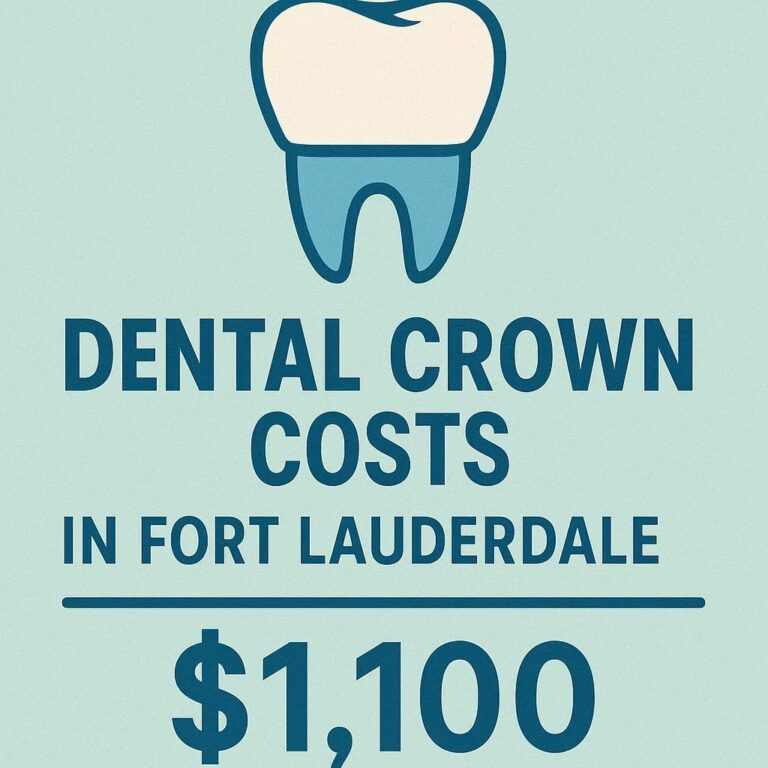Unveiling the cost of dental crown in spain: A Comprehensive Guide for Savvy Patients
For many people, a dazzling smile is a symbol of confidence and overall well-being. But what happens when a chipped, cracked, or weakened tooth threatens that perfect grin? Dental crowns emerge as a knight in shining armor, restoring both the function and aesthetics of your teeth. If you’re considering dental crown treatment in Spain, navigating the cost factors can feel like deciphering a secret code. Worry not, for this in-depth guide will equip you with all the knowledge you need to make informed decisions about your cost of dental crown in spain.

The Power of Dental Crowns: Understanding Their Role
[Imagen of A dental crown cemented onto a damaged tooth]
A dental crown is a custom-made cap that fits over a damaged, weakened, or severely discolored tooth. It acts like a protective shield, restoring the tooth’s strength, shape, size, and appearance. Crowns are crafted from various materials, each offering unique advantages and influencing the overall cost.
The Cost Spectrum: Unveiling the Factors Influencing Dental Crown Prices in Spain
The price tag for a dental crown in Spain isn’t a one-size-fits-all situation. Several factors play a crucial role in determining the final cost you’ll encounter. Here’s a breakdown of the key players:
- Material Selection: The material used to fabricate your crown significantly impacts the cost. Here’s a closer look at popular options in Spain:
- Metal-ceramic crowns: These are the most budget-friendly option, typically ranging from €370 to €540. The metal base provides strength, while the porcelain layer delivers a natural look. However, the metal might show through a thin gum line, compromising aesthetics.
- All-ceramic crowns: These crowns prioritize aesthetics, offering a tooth-like appearance that blends seamlessly with surrounding teeth. The price point for all-ceramic crowns in Spain falls between €420 and €600.
- Zirconia crowns: Zirconia crowns are quickly gaining popularity due to their exceptional durability, biocompatibility, and natural-looking aesthetics. Expect to invest between €450 and €700 for a zirconia crown in Spain.
- Gold crowns: While less common nowadays due to aesthetic concerns, gold crowns offer unmatched durability. The price can vary depending on the gold content, but generally starts from €700.
- Location and Clinic Reputation: The geographical location of your dental clinic can influence the cost. Clinics in major cities like Barcelona or Madrid might have slightly higher prices compared to rural areas. Additionally, the reputation and expertise of the dentist can also play a role.
- Complexity of the Procedure: If your tooth requires additional procedures before crown placement, such as root canal therapy or extensive cleaning, the overall cost will increase.
- Diagnostic Tests and X-rays: Dental x-rays and other diagnostic tests are crucial for treatment planning. The cost of these can vary depending on the clinic and the complexity of your case.
- Temporary Crown: While the permanent crown is being crafted, a temporary crown will be placed to protect the tooth. The cost of the temporary crown is usually minimal, but it’s still a factor to consider.
Cost Breakdown of Dental Crowns in Spain (Approximate Prices)
| Material | Price Range (Euros) | Advantages | Disadvantages |
|---|---|---|---|
| Metal-ceramic | €370-€540 | Most affordable option, good strength | Less aesthetic due to visible metal base |
| All-ceramic | €420-€600 | Excellent aesthetics, natural-looking | Slightly less durable compared to metal-ceramic |
| Zirconia | €450-€700 | Highly aesthetic, biocompatible, durable | Slightly higher cost than all-ceramic |
| Gold | €700+ | Exceptional durability | Not very aesthetic due to gold color |
Beyond the Cost: Additional Considerations for Dental Crown Treatment in Spain
While cost is a significant factor, it shouldn’t be the sole deciding element. Here are some additional aspects to ponder:
- Dentist’s Experience and Qualifications: Choose a dentist with proven experience and expertise in placing dental crowns. Their skill directly impacts the success and longevity of your crown.
- Clinic Facilities and Technology: Opt for a clinic equipped with modern technology and utilizes high-quality materials for crown fabrication.
- Communication and Transparency: Ensure clear communication with your dentist regarding the treatment plan, materials used, and the final cost breakdown.
- Warranty and Aftercare: Inquire about the warranty offered on the crown and the clinic’s aftercare protocol.
Financing Options: Making Dental Crowns in Spain Accessible
The good news is that several financing options can help manage the cost of dental crown treatment in Spain. Here are some possibilities to explore:
- Dental Insurance: If you have dental insurance that covers restorative procedures like crowns, you might benefit from significant cost savings. Check your policy details to understand the coverage specifics.
- Patient Payment Plans: Many dental clinics in Spain offer flexible payment plans, allowing you to spread the cost over several installments. This can make the treatment more manageable for your budget.
- Dental Tourism: Spain is a popular destination for dental tourism due to its high-quality dental care and often lower costs compared to other European countries. If you’re considering this route, ensure thorough research to choose a reputable and qualified dentist.
FAQs: Demystifying Common Questions About Dental Crowns in Spain
- How long does the dental crown procedure take in Spain?
The timeframe for dental crown placement in Spain typically involves two appointments. The first visit involves examination, x-rays, tooth preparation, and placement of a temporary crown. The second appointment involves the fitting and cementation of the permanent crown. The entire process can take anywhere from two to four weeks.
- How long do dental crowns in Spain typically last?
With proper care and oral hygiene, dental crowns in Spain can last anywhere from 5 to 15 years or even longer. The lifespan depends on the material used, the condition of the underlying tooth, and your individual dental hygiene practices.
- Does getting a dental crown in Spain hurt?
Local anesthesia is typically administered during the dental crown procedure, minimizing discomfort. You might experience some mild soreness or sensitivity after the procedure, which can be managed with over-the-counter pain medication.
- What are the aftercare practices for dental crowns in Spain?
Following a consistent oral hygiene routine, including brushing twice daily and flossing regularly, is crucial for maintaining your dental crown and surrounding teeth. Regular dental checkups and cleanings are also essential for ensuring the longevity of your crown.
- Are there any risks associated with getting dental crowns in Spain?
As with any dental procedure, there are potential risks involved with dental crowns. These can include tooth sensitivity, chipping or fracturing of the crown, and allergic reactions to certain crown materials. Discussing these risks with your dentist beforehand is crucial.
Additional Resources:
- Spanish Dental Association (https://consejodentistas.es/)
- Dental Tourism Guide Spain (https://www.dentaldepartures.com/es/media-room)
Conclusion
Dental crowns in Spain offer a valuable solution for restoring damaged or weakened teeth. By understanding the cost factors, additional considerations, and financing options, you can make an informed decision about your dental crown treatment. Remember, prioritizing quality, dentist expertise, and proper aftercare are equally important as cost when embarking on your dental crown journey in Spain.
You might also want to check out these articles for more ideas: Unveiling the dental bridge cost spain


